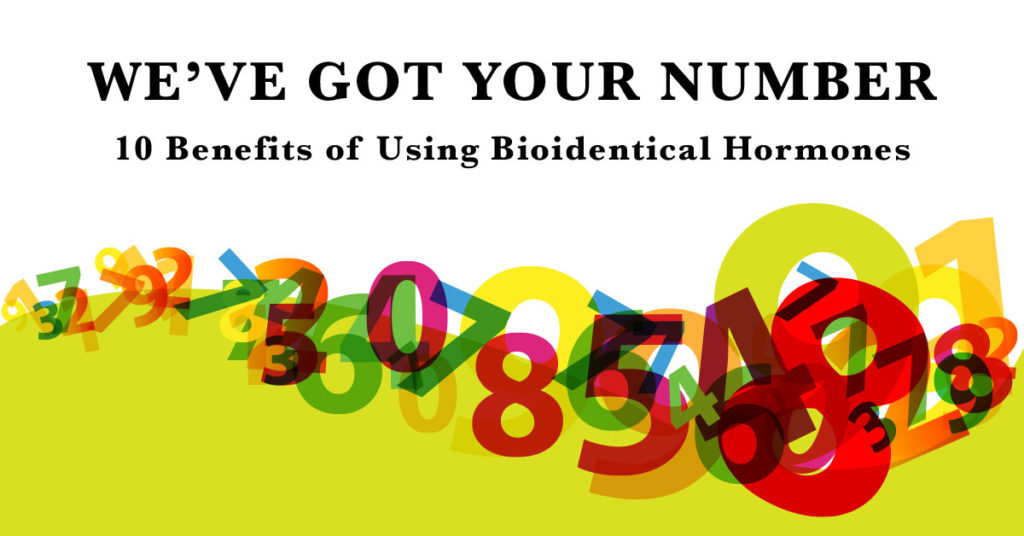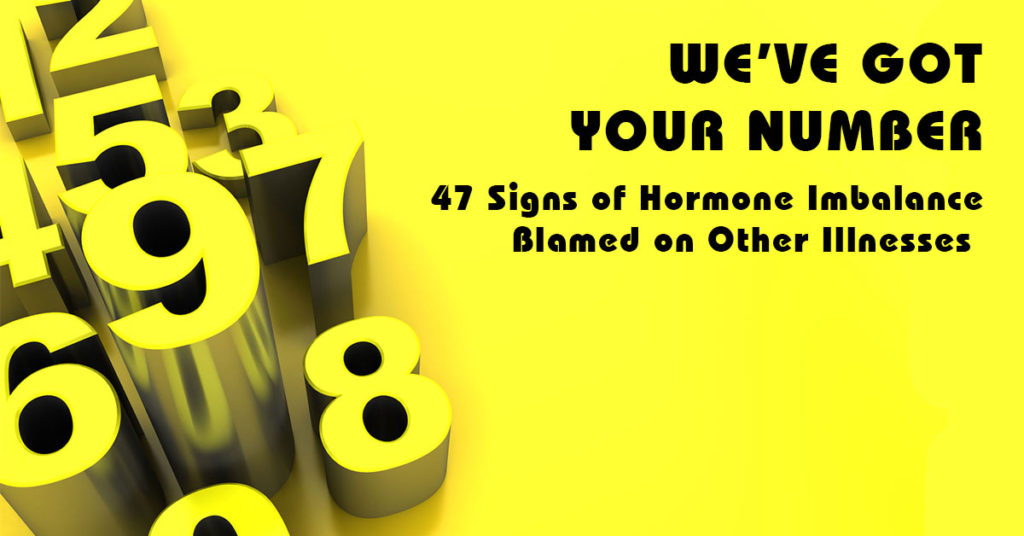We’ve Got Your Number – 10 Benefits of Using Bioidentical Hormones

Top 10 Vaccine-Preventable Diseases
- Measles: Measles can cause pneumonia, brain swelling, and death. Before the vaccine, 3 million to 4 million people in the U.S. got measles each year, 48,000 were hospitalized, and 400-500 died.
- Whooping Cough (Pertussis): It can be life-threatening, especially in babies less than 1 year old. Whooping cough can lead to pneumonia, seizures, and slowed or stopped breathing.
- Flu: Up to 49,000 Americans die from the flu each year. The flu can worsen asthma and diabetes.
- Polio: Most people get no symptoms or flu-like symptoms that last a few days, but polio can cause brain infection, paralysis, and death. It was one of the most feared and devastating diseases of the 20th century. Polio cases are down sharply thanks to vaccination, but the disease is not gone from the world.
- Pneumococcal Disease: Complications can be serious and fatal. As pneumonia, it’s especially deadly in people older than 65. If it causes meningitis or infects the blood, these can be life-threatening.
- Tetanus: 10% to 20% of tetanus cases are fatal. Deaths are more common in people who are older than 60 or who have diabetes.
- Meningococcal Disease: Between 1,000-1,200 people in the U.S. get meningococcal disease each year. Even with antibiotics, as many as 15% die.
- Hepatitis B: It can lead to liver cancer and other long-lasting liver diseases, which can be deadly.
- Mumps: It can cause long-lasting health problems, including meningitis and deafness. Mumps is now rare in the U.S., thanks to the MMR (measles-mumps-rubella) vaccine. But outbreaks still happen, usually among people spending time close together, like living in a dorm.
- Hib (Haemophilus Influenzae Type B):Before the Hib vaccine, about 20,000 U.S. children younger than 5 got Hib each year. About 3% to 6% of them died.
Without available vaccines, the fatalities can really tally up.
16 Secrets Guys Wish You Knew
- Men will talk about feelings
- Men say “I love you” with actions
- Men take commitment seriously
- He really is listening
- Shared activities form bonds
- Men Need Time for Themselves
- Men learn from their fathers
- Men let go faster than women
- Men don’t pick up on subtle cues
- Men respond to appreciation
- Men think about sex … A Lot (o.k., so maybe this one is no secret)
- Men find sex significant (ditto)
- He likes it when you initiate sex
- Men like pleasing their partner
- Guys get performance anxiety
- Men may stray when needs aren’t met
So, ladies, the numbers are definitely in your favor.
5 Diabetic- Friendly Cocktails
- Beer: light, low carb, but never “craft”
- Wine; some research says wine (red or white) may help your body use insulin better and may even make you less likely to get type 2 diabetes in the first place
- Liquor: One ounce of liquor, depending on the proof, has about the same amount of alcohol as 5 ounces of wine
- Bloody Mary: It won’t be such a diabetes diet disaster if you take out the alcohol to make it “virgin.”. Want a taste of vodka? Add a celery spear, and use low-sodium tomato juice
- Sangria: Ole is ok if it’s not pre-made and you cut out using any mixers with sugar
Other things to take into account: Wear ID that says you have diabetes, be careful if you take insulin, don’t drink on an empty stomach, stay hydrated, don’t use drinks as meals, don’t forget to test. Those numbers really count.
10 Benefits of Using Bioidentical Hormones Include:
- Reduced risk of osteoporosis and improved bone density
- Reduced incidence of hot flashes and vaginal dryness
- Better maintenance of muscle mass and strength
- Improved cholesterol levels
- Reduced risk of endometrial and breast cancer
- Reduced risk of depression
- Improved sleep
- Better mood, concentration and memory
- Improved libido
- Reduced risk of Alzheimer’s disease
THE SINGLE MOST UNPARALLED EXPERT IN THE USE OF BIOIDENTICAL HORMONES IN THE DENVER AREA:
- Dr. Stephen A. Goldstein, M.D, F.A.C.S. at Denver Hormone Health
With Dr. Goldstein, Bioidentical Hormone Replacement Therapy is never a one-size-fits-all approach to optimum health. He treats every patient as if they were his only patient, with the one goal of helping them feel on top of the world. Each prescription he creates, is custom compounded, based on the individual diagnostic results of simple tests. There’s only one way to discover if what you’re feeling is due to an easily treatable solution. Make an appointment to see Dr. Goldstein now.
You’ll know he’s the one for any number of reasons.


